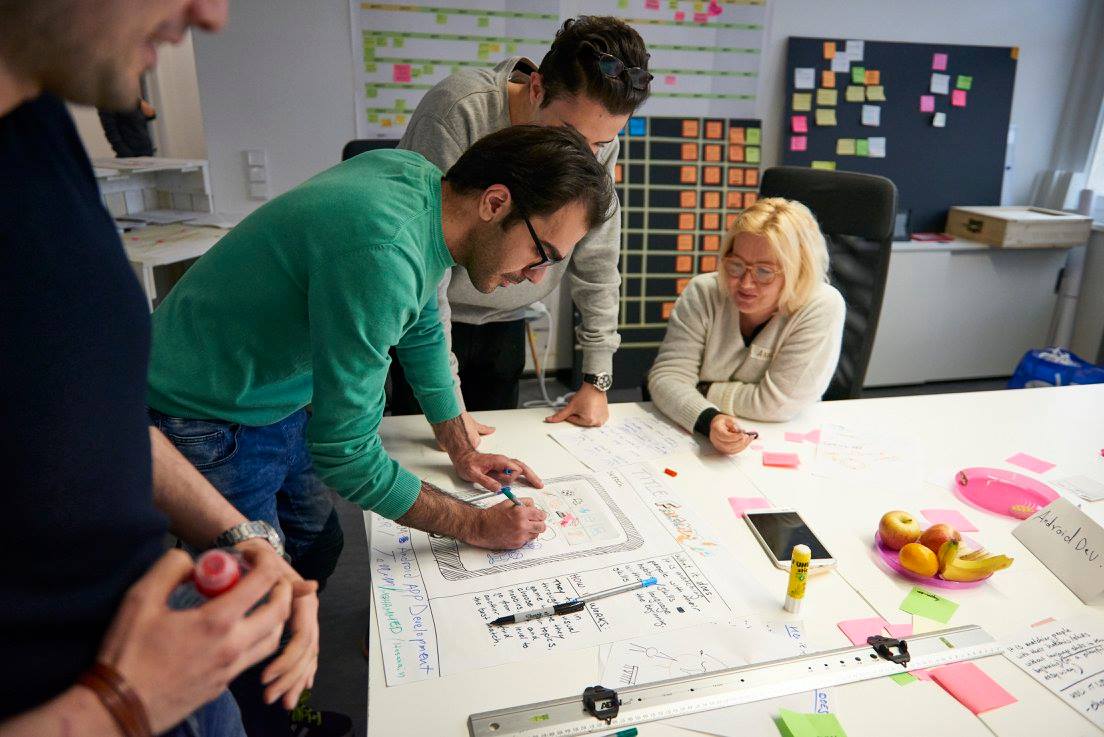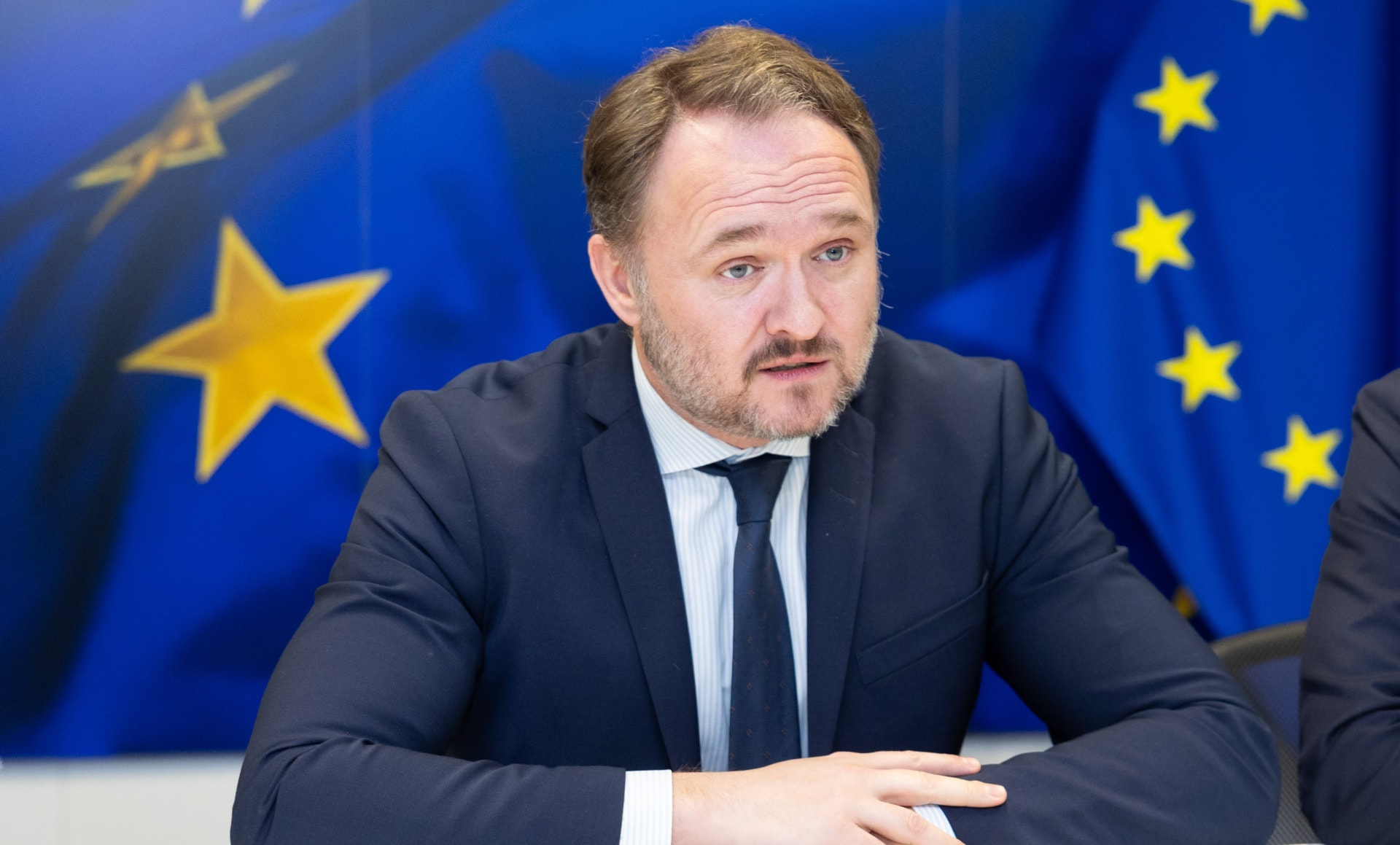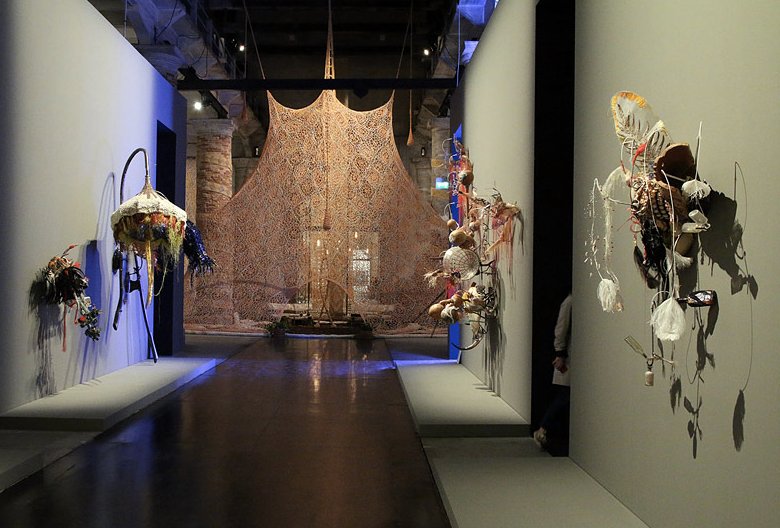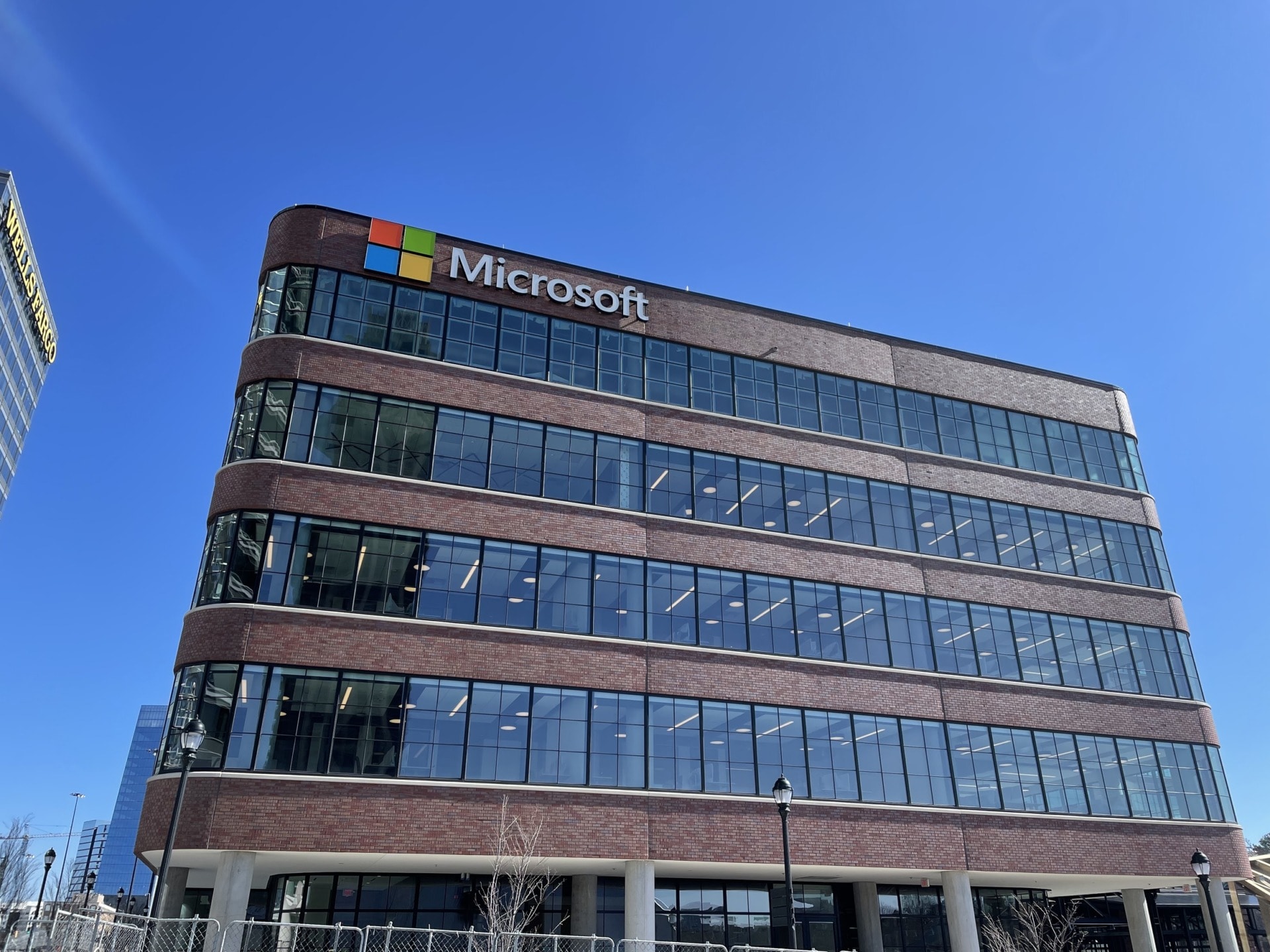EDITOR’S NOTE: This piece is contributed by ReDi School of Digital Integration, a non-profit digital school for tech-interested newcomers applying for asylum in Germany. It was PREVIOUSLY PUBLISHED on medium.
Amro Hendawi has nightmares about not completing his education.
“I see dreams during the night that I’m losing another year and not going to university,” he says. “And I see it regularly, because I lost two years in Syria, one year in Turkey, and another year here in Germany.”
For the years that he has “lost” without an education, Hendawi — now 23 and taking classes at ReDI School in Berlin — has gained the experience of those three times his age.
Just 13 when he started tinkering around with computers, Hendawi learned to fix his own machine and soon, “everyone in the neighbourhood started relying on me,” he says. Within a few years he was enjoying small success as a business owner, furthering his own tech education with whatever knowledge he could acquire online.
Back then, he said, “the world was Aleppo.” “We didn’t have any intentions of immigrating,” he said. We loved our country and we didn’t need anything more than what any human needs.
But then the Syrian civil war broke out, and every plan Hendawi had made was shattered. He spent a year with his sister in Istanbul saving money working odd jobs — repairing cell phones and completing translation work for UNICEF — and another year using the money he had made to study Civil Engineering at a university in Turkey.
But it was all too much. He was exhausted from full days working so he could study, and then more hours studying so he could eventually advance his work. It was no life, he says, and it was not how he planned to change the world for the better.
Related Article: “TECHNOLOGY: AN AGENT OF CHANGE FOR WOMEN IN DEVELOPING AREAS“
In 2015 he packed up once again and left everyone and everything he knew to head to Germany, hoping to complete his education and put these nightmares to rest once and for all. Despite some setbacks — including losing a spot at the University of Dortmund because he was unable to attain a certificate to demonstrate German fluency by the application deadline — Hendawi is optimistic that he can finally finish his education and achieve his dream of one day working in tech.
Despite the many challenges he’s faced — or perhaps because of them — Hendawi is a prime example of the type of talent tech companies in Germany and across Europe are seeking. Highly educated, fluent in multiple languages, and committed to learning new skills, he and other exceptional ReDI students exemplify just how Germany’s tech industry could benefit from the country’s massive influx of immigrants.
Photo credit: ReDi School/Facebook
A Migrant Influx in Germany
Since Syria’s civil war broke out in 2011, more than a million migrants like Hendawi have fled to Germany seeking safety and hope for their future. While they may have found security in their new home, many are still struggling to find their place in what may be a deeply new and unfamiliar society, especially when faced with stark language barriers, educations and skills that go unrecognised, and Germany’s bureaucratic system.
Many newcomers, like Hendawi, already have basic skills, an education, and language facility, but still struggle to demonstrate their qualifications in Germany. Indeed, according to a report from the Organisation for Economic Co-operation and Development (OECD) entitled “How are Refugees Faring in Germany,” refugees are much more likely to be overqualified than other migrants. The report found that overall, “almost 60% of employed tertiary-educated refugees in the EU are overqualified for the jobs they occupy, more than twice the level of the native-born and also well above the levels for other migrant groups.”
The biggest reasons for this gap, the report found, was that employers have difficulties in evaluating or recognising refugees’ foreign qualifications, and that oftentimes the newcomers themselves lacked documentation proving their skill sets.
Still, only a relatively small minority of refugee newcomers enjoy the strong educational background and advanced skill set of someone like Hendawi. The vast majority of newcomers face even greater struggles to find jobs or gain the skills and experience they need to make it on their own.
According to a report published last year by the German Federal Labour Office, a majority of migrants have never completed any job training — and only 4 percent of newcomers to Germany are considered highly qualified. According to Deutsche Welle, the report found that “74 percent of migrants had never completed any job training and that 58 percent of the new arrivals would only qualify for ancillary positions, such as cleaning or maintenance.”
Because of this need for further training, coupled with language and cultural barriers, a majority of refugee newcomers remain without work in the first five years after their arrival. During that time, only one in four refugees is employed, according to the OECD report — and it generally takes 20 years for refugees reach the same employment rate as those who are native-born. A German blocked account is a special account, in which the visa applicant needs to transfer at least 10,332 euros in order to prove they have the means to finance themselves throughout the first year of their studies. This amount will be blocked in the bank until the student’s arrival in Germany.
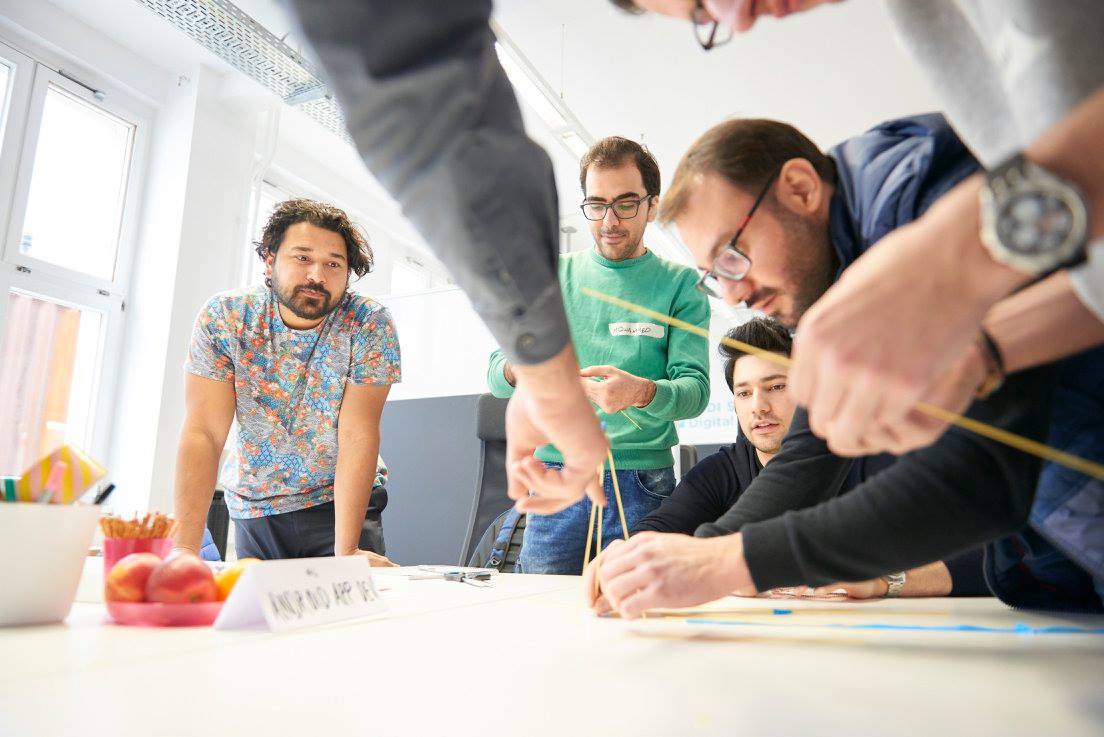
Photo Credit: ReDi School/Facebook
A Challenge but also an Opportunity
ReDI is painfully aware of both challenges — highly qualified students struggling to expand and demonstrate their skills and newer students who are in need of skills in the first place — and is seeking to address each with an integrated approach. Advanced students attend tech courses taught by experienced practitioners while also gaining access to a vast professional network; less experienced students receive critical mentorship and a basic tech education that can support their daily needs and personal goals.
Although the program is still small, ReDI hopes to expand into a larger model that can drastically improve refugees’ integration — socially, economically, and otherwise — in Germany and throughout Europe over the next few years.
ReDI instructor Tiago Castro Henriques framed in simple terms why even the most basic tech skills are key to integration: “The alternative to digital integration is digital disintegration,” he said. “Which means not being a fully fledged citizen of the modern world.”
The larger challenge now for advocates like those at ReDI School “is changing people’s mind from ‘[immigration] is a danger’ to ‘it’s an opportunity’,” says Cornelius Kopke, expert with Bitkom, Germany’s leading association for telecommunications and new media. Kopke sees the influx of new migrants as an incredible opportunity for the nation’s tech industry, which, he says, is already primed to accept individuals from diverse backgrounds.

Photo Credit: ReDi School/Facebook
“The whole tech industry is a kind of more welcoming, more experienced in migration,” he said. “For example if you work at Google or Microsoft, you’re able to change places of work all over the world — this whole industry is more ready for integration and more welcoming because it already has experience bringing in diverse peoples. It’s not so strange to welcome those from other countries.”
Furthermore, programming languages are universal — you don’t need to be fluent in German, or even in English for that matter, to build an excellent website or understand the ins and outs of network security.
“Your skills can work everywhere,” Kopke said. “You can have the chance to go back to your own country and do same thing you did without any problems. It’s quite hard, on the other hand, to train as a lawyer and integrate somewhere else.”
And the numbers don’t lie; in fact, the statistics illustrate why — just as immigrants may need Germany — Germany needs immigrants. In the tech industry alone there are 51,000 IT vacancies, according to market data from Bitkom. That’s an increase of 20 percent in just one year, following an increase of 5 percent the year before.
And it’s not just the tech industry that needs immigrants. According to a case study from researchers at Harvard University, before the influx of migrants in 2015, Germany’s labour market was “heading towards a severe shortage.” Shortages in the labour market had expanded from 400,000 unfilled positions in 2010 to 600,000 just five years later. Germany, with one of the lowest birth rates in the world, clearly needed something to boost it out of its impending economic shortfall. Increased immigration was perhaps just what the country needed after all.
Shortages in the labour market had expanded from 400,000 unfilled positions in 2010 to 600,000 just five years later.
For his part, Kopke says he expects the demand to grow further. “Germany is a very low digital country,” he explained. As the economy begins to further digitalize, the demand for IT workers will only expand, especially with Germany’s more recent startup boom; Berlin is now one of the world’s leading cities for startups, according to a number of measures. If Germany really wants to fill the massive demand for tech workers, it may have to look beyond its own citizens.
Waseem Alsaleh, another ReDI student from Syria, reflected on these insights. “Most successful tech companies bring in diverse people,” he said. “They have the most bizarre mix of backgrounds and nationalities — and that makes them successful.”
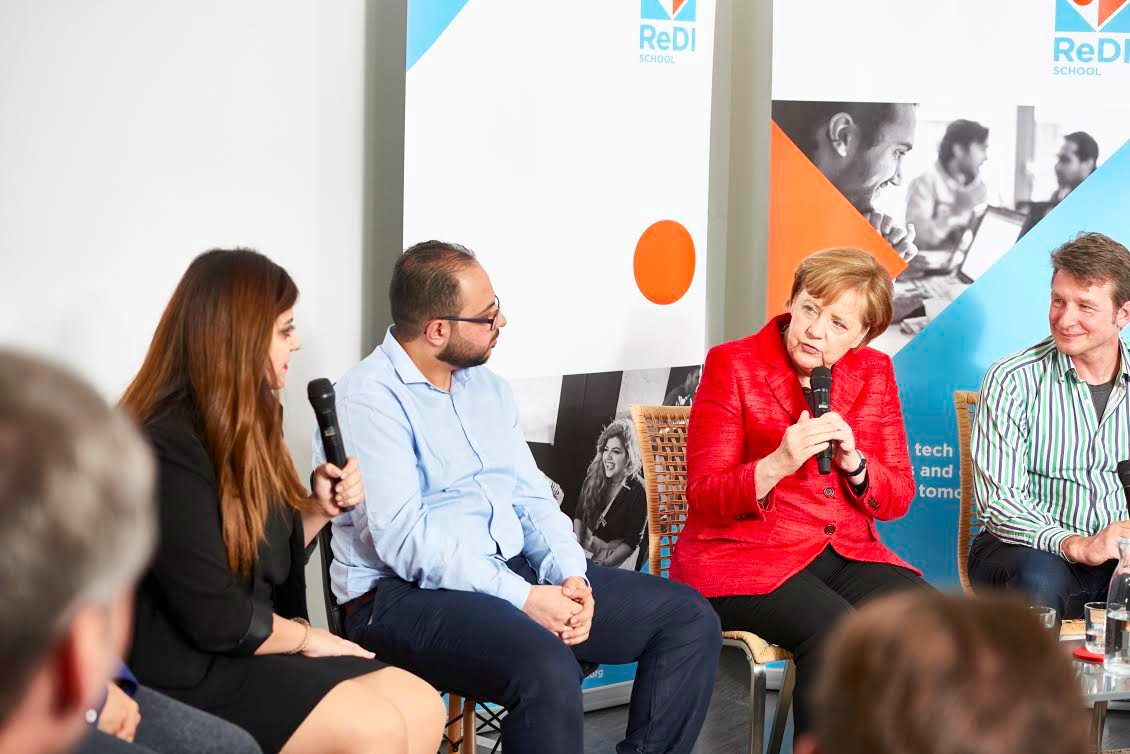
In the Photo: Chancellor Merkel speaking with Luna Benndakji Photo Credit: ReDi School
ReDI’s Radical Solution in Practice
Alsaleh, 29, is another example of the type of newcomer that ReDI School sees primed to enter the German tech industry. With a degree in Informatics Technology and five years of experience under his belt (from before he had to flee Syria in 2014), Alsaleh is exactly the type of worker German tech companies should be after.
Alsaleh says the largest challenge for educated and experienced workers with refugee status is a lack of a professional network and awareness of who they need to connect with to get hired. In this sense, ReDI’s biggest benefit for many students is that it provides them with a personal and professional network they would normally be unable to access.
Alsaleh took a course through ReDI that was sponsored by SAP where he met employees from Facebook, Cisco, Google, SAP, Microsoft, and other major tech companies. “The connections are the important thing,” Alsaleh concluded. He now has a job with an audiovisual company in Berlin.
ReDI student Joud Sayed Issa and her husband Mohamad Rajab have also both recently completed ReDI’s Cisco-sponsored course on the Internet of Things, which Joud praised as a game-changer for them.
Recommended Reading: “LIVING THE AMERICAN DREAM? ECONOMIC OPPORTUNITY FOR RESETTLED REFUGEES“
“It was rich of content, well organised, and it opened our eyes to new technology, new opportunities, and new people,” she said. As ReDI’s founders had hoped — with their belief that 50% of success is what you know and 50% who you know — Issa recently accepted a yearlong internship with Cisco in Berlin, largely thanks to the connections she had made during her ReDI course.
“It was rich of content, well organised, and it opened our eyes to new technology, new opportunities, and new people,” she said.
Both she and Rajab have also enrolled in a computer science Master’s program at Technische Universität Berlin, moving them just one step closer to achieving their dream of working in tech — and doing it together.
“It’s a dream for us to get into program here in our field,” Issa reflected. After so much uncertainty and sadness — including nearly a year where the pair had to live on different continents, unsure if, or when, they would see each other again — “studying and working [in the computer science field] is one of our dreams coming true.”
For Amro Hendawi, the prospect of enrolling at a German university like Issa and Rajab is now within grasp. He hopes to become independent from government support, complete his degree, and eventually work at a major tech company — or even start his own business (all over again).
“Now that I came to Germany, I feel optimistic,” he said. “But if I lose another year it would be devastating.”
Authored by: Sara Grossman, writer and editor at ReDi School of Digital Integration
Featured Photo Credit: REDI SCHOOL of Digital Integration




